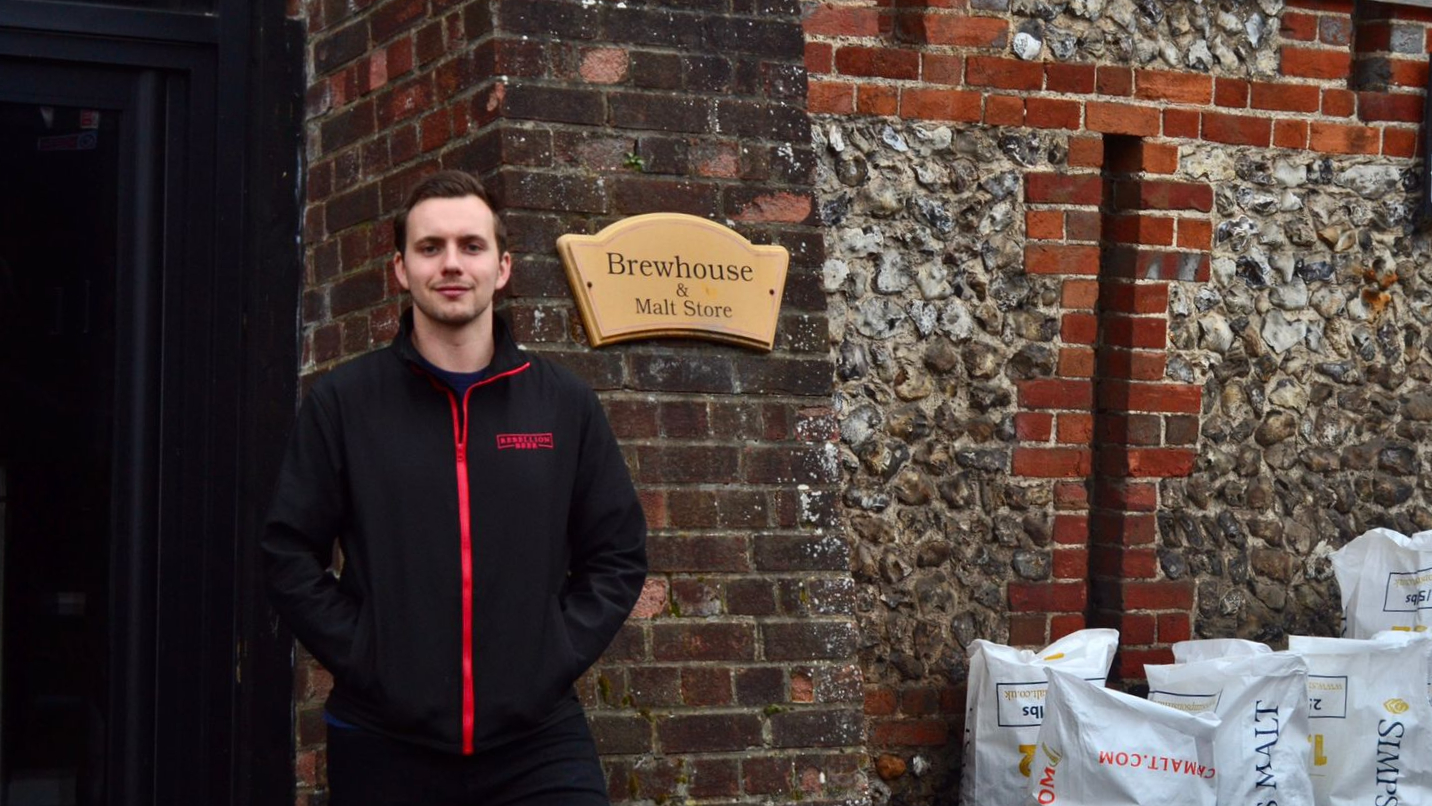When I first graduated, I spent a year in Cape Town, South Africa, where I learnt how to brew at home and worked in small craft breweries, learning as much as possible about making beer. I also went to South Africa on my study year abroad, where I met a brewer at a local beer festival who had completed a degree in chemistry. It really was a lightbulb moment because I’d never considered brewing as a career to use my skills before then!
I now work as a Brewing and Fermentation Operator for the Rebellion Beer Company in Buckinghamshire. My main responsibilities involve making sure each job conforms to the standard operating procedure and the beer conforms to specifications. I also note any deviations and ensure action is taken to remedy them. The jobs I do range from brewing fresh wort for fermentation, checking the progress of fermentation, removing yeast from beer that’s finished fermenting to use in fresh brews, and filtering beer for packaging into kegs, bottles and casks.
Using science to brew beer
Having a background in science has helped my understanding of the reactions that occur in fermentation. In the lab sessions during my degree, I was always making a few grams of a crystalline powder, whereas now I am making several thousand pints of beer at a time and able to taste the fruits of my labour.
One of the main things I’ve taken from my degree is how it’s improved my diligence when recording processes to refer to when making the same beer in the future. If there are parameters that have consistently been out of specification, I’m able to notice a trend and find a cause for any deviations.
It’s a hard job, with some long days and manual labour so seeing the reception of the public drinking the beer I’ve helped produce when I am out in local pubs puts a smile on my face.



